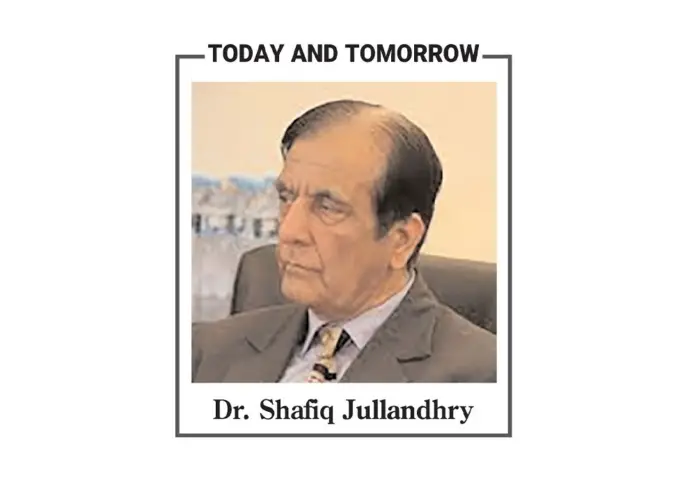I experienced some strange incidences of telepathy when I was residing at the Rasul Chambers in Old Anarkali of Lahore. The Rasul Chambers is a three-story building near Anarkali Chowk, where I stayed for five years, from 1969 to 1974. This building is adjacent to Rana Chambers and in front of Munshi Chambers. We had our bachelor lodge on its third floor. When Mr Majeed Nizami, editor-in-chief of Daily Nawa-i-Waqt, had some differences with the widow of his elder brother the late Hameed Nizami, founder of the newspaper, he separated from the popular Urdu paper. He started his own newspaper Nida-i-Millat on June 9, 1969, from Munshi Chambers. I joined this newspaper as a sub-editor. Many other friends, my university class fellows, and journalists used to live in this bachelor lodge.
Some of them are Kanwar Muhammad Dilshad, Muneer Ahmed Muneer, Mehboob-ul-Haq Dar, Akram Qureshi, Nisar Lodhi, Sajid Butt, Engineer Aslam Niazi, Justice Muzamil Khan (at that time advocate), Ajmal Malik, Khurshid Rana, Azhar Zaman, Akram Qureshi, Zafar Iqbal, Tanveer Shahid, and Javed Iqbal Piracha. Many friends from the city used to visit us in this building. Prominent among them was Syed Zia-ul-Salam Hashmi.
Hashmi was an industrialist and owned Gulistan Textile Mills in Lahore. His mill stopped its production after the ‘fall of Dhaka’ because its market was East Pakistan (now Bangladesh). He was planning to start a hotel at a piece of land located in front of Jain Mandar. His father, Syed Abdul Salam, was a prominent lawyer of Faisalabad, and his grandfather, living in Jullandhar, Syed Abdul Qayyum Jullandhry, was considered as the first Indian author of law books.
For at least three years during my stay at the Rasul Chambers, Syed Zia Hashmi was a regular visitor of my residence who liked to have a long walk with me on The Mall road and active discussions on national, cultural, and religious issues with him were a routine. We were experiencing telepathy incidences almost every day. For example, if his routine arrival time was five in the evening, one day at four, I thought that he should be here right now and at the same time the door opened very slowly and he was entering my room. Often during routine discussions, I got an idea in my mind and thought that Mr Hashmi had not said anything on this aspect of the issue under discussion, and at the exact moment, he started talking about that. On dozens of times, he told me that he was expecting me to throw some light on some particular issue and that I had started talking right on the same problem.
One day besides the late Syed Zia, while coming down the stairs from my third floor, suddenly some words from the famous Indian film song, “Hawa mein urrta jaey mera lal dupatta,” started to appear in my mind.
There was no such sound in the air, nor I was singing it myself, the song was only in my mind, I was repeating it until I came down on the floor. Here, I found a twelve-year-old boy wearing a very long shirt; he blocked my way; I took the other side, turned to that side, and stood in front of me again. At this moment I yelled: What is wrong with you? He stared at my face for some moments and then, twisting both his hands in front of my face, said: “Hawa mein urrta jaey mera lal dupatta.” After it, he gave me the way and ran away. I stood there stunned and then ran after him, but I couldn’t find him anywhere.
Questions about him haunted me for many weeks. Who was he? And how did he know that I had got those words in my mind at that moment? I still don’t know what it means. During summers, we, the residents of the Rasul Chambers, used to set our coats on the building’s 150 feet long top roof for sleeping at night. My roommate Mr Javed Iqbal Piracha was the news editor of the state-owned Pakistan Television. One night, he returned very late to the chamber, and on reaching the top floor, he started telling me where his duty was for coverage. His cot was close to me, and our classfellow Mehboob-ul-Haq was also sitting nearby. Since other people were also sleeping around us, Javed Piracha kept his tone down and was almost whispering while telling me how a Sikh army officer of India challenged one of our Pakistani army officer to have a duel with him, his men cheated and killed our officer with their firing.
When he came to this point, our friend Tanvir Shahid who was sleeping three cots away, growled badly. Mehboob-ul-Haq reached him and asked what had happened to him. Tanvir said it was not something serious he was frightened only because of a dream he saw. Mehboob-ul-Haq again asked what his dream was about. Then to our extreme astonishment, he told all the story word by word, which Javed Piracha was telling us about the martyrdom of the Pakistani army officer. Mr. Piracha’s voice was not audible from that place, but he listened to all Mr. Piracha said in his dream. That means some transmitter was taking the words uttered in the real world to the world of dreams. But we don’t know how science can interpret it.







